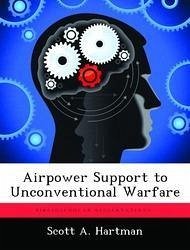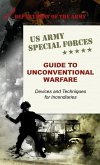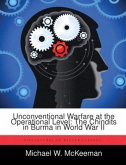With the development of the "long war" the U.S. military's focus has shifted dramatically from its traditional emphasis on conventional operations to irregular and indirect approaches to safeguard America's vital interests. One of the least understood aspects of Irregular Warfare is Unconventional Warfare (UW), which includes operations conducted through, with or by indigenous forces and provides the U.S. with an indirect means of accomplishing its objectives. This thesis examines the current ability of Special Operations Forces to conduct UW with air support, specifically air support provided by Air Force Special Operations Command (AFSOC). This thesis examines the questions--Does AFSOC currently have airpower assets with the capability to support UW operations with mobility, resupply, and fires? Three case studies were used to examine airpowers role in UW: Allied support to the French resistance in WWII, United States support to the Hmong during the conflict in Laos and a hypothetical scenario using AFSOC's current capabilities. The three case studies were examined using the evaluation criteria of effectiveness, efficiency and unity of effort. The analysis found that AFSOC could currently support UW operations, but effectiveness would be limited by a number of factors.
Hinweis: Dieser Artikel kann nur an eine deutsche Lieferadresse ausgeliefert werden.
Hinweis: Dieser Artikel kann nur an eine deutsche Lieferadresse ausgeliefert werden.








